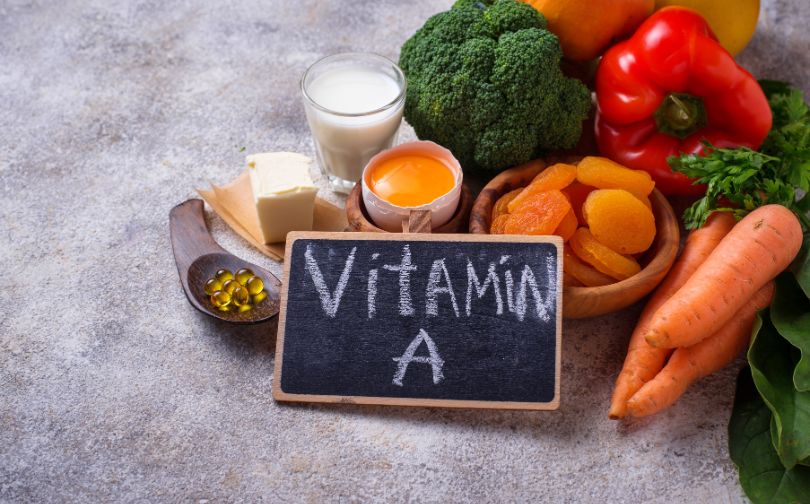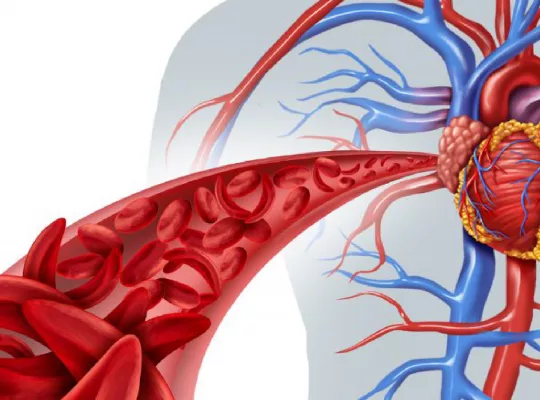Vitamin A is essential for keeping our vision, skin, and immune system strong, yet many people struggle to get enough of it. A lack of this nutrient doesn’t just lead to mild discomfort—it can cause serious health issues, like night blindness and even increase the risk of infections. This type of deficiency often goes unnoticed until symptoms begin to disrupt daily life.
If you’re feeling frustrated or unsure about how to address low vitamin A levels, you’re not alone. Millions experience similar challenges, especially in diets that may be lacking in nutrient-rich foods.
In this article, we’ll walk through the causes, signs, and effective solutions for correcting a vitamin A deficiency. With clear steps and simple changes, you can restore and maintain this vital nutrient to help protect your health and well-being.
What is a vitamin A deficiency?
Vitamin A deficiency is when your body does not receive or retain enough vitamin A. Normal levels of vitamin A in a human are between 30-60 mg/dl. Any level that falls below this range indicates a deficiency.
What causes a vitamin A deficiency?
The major cause is based on chronic consumption of diets that are deficient in both vitamin A and beta-carotene. If few animal sources are in your daily intake, pre-formed vitamin A won’t be absorbed as much as necessary. In addition to dietary problems, an iron deficiency can affect vitamin A uptake. Excess alcohol consumption and a stressed liver also deplete vitamin A and its absorption rate.
Those with diseases that affect the intestine’s ability to absorb fat also have an increased risk of developing a vitamin A deficiency. Examples of such diseases include cystic fibrosis, celiac disease and cholestasis.
What are the signs and symptoms?
Night blindness is a major sign that you may have a vitamin A deficiency. Vitamin A affects your sight exclusively and any sight problems may be derived from low vitamin A levels. If untreated, this night blindness, if caused by a vitamin A deficiency, can lead to permanent, irreversible eye damage and possible blindness.
How do you treat a vitamin A deficiency?
There are vitamin supplements specifically for vitamin A deficiencies and also multi-vitamins that can help with general vitamin levels. For severe deficiencies, there are vitamin A injections available, if decided necessary by a physician.
For more information on vitamin A deficiencies or if you think you may have a vitamin A deficiency, contact your primary care physician.
What Food Contains Vitamin A?
Vitamin A is found in both animal and plant-based foods, with each source offering a different form of the nutrient.
Animal products, such as liver, fish oils, eggs, and dairy, contain preformed vitamin A, which the body can readily use. In contrast, plant-based sources, including carrots, sweet potatoes, spinach, and mangoes, provide beta-carotene and other carotenoids. The body converts these compounds into vitamin A during digestion.
Moreover, fortified foods like milk, cereals, and margarine contribute to dietary intake, especially where deficiencies are a concern. Including a variety of these sources in meals helps maintain healthy vision, immune function, and cell growth.
The recommended intake varies by age and gender, so a balanced diet ensures adequate levels without the risk of excess, which could lead to health complications.
How can you prevent a vitamin A deficiency?
Design your diet to include vitamin A-rich foods including liver, meat, eggs, milk and dairy products. These groups of foods should be included as a regular component of your diet to help create a well-balanced meal regiment. If you have a problem with digesting dairy foods, consume DAIRY AID or Lactaid capsules for proper lactose digestion. You can also consume fiber tablets to support your digestion. Foods rich with beta-carotene are also essential in prevent a vitamin A deficiency, including foods such as red peppers, carrots and pumpkin. Margarine has a lot of beta-carotene in it because the chemical is used as a coloring agent in margarine products.
Conclusion
Correcting a vitamin A deficiency involves understanding its causes, symptoms, and treatment methods. This deficiency, more common in regions with limited access to nutrient-rich foods, directly affects vision, with night blindness being one of the earliest warning signs. Without timely intervention, the condition may lead to irreversible damage.
Treatment options include vitamin supplements, injections for severe cases, and multi-vitamins to maintain overall health. Incorporating both animal and plant-based sources, such as liver, dairy, carrots, and spinach, ensures steady vitamin A intake.
Preventing the deficiency requires a balanced diet that covers both preformed vitamin A and beta-carotene. Fortified foods also play a role, especially in areas with a higher risk of deficiency. Consistent dietary planning helps sustain proper vision and immune function.
FAQs
Who Is at Risk for Vitamin A Deficiency?
People at risk for vitamin A deficiency include those with malabsorption disorders, individuals on low-fat diets, and residents of developing regions where vitamin A-rich foods are scarce. These groups may struggle to meet the body’s vitamin A requirements, potentially leading to health issues associated with deficiency.
Can Vitamin A Deficiency Cause Permanent Damage?
Yes, untreated vitamin A deficiency can cause permanent damage, notably in vision. It plays a crucial role in immune function, skin health, and cell growth. Prolonged deficiency may result in irreversible vision impairment and an increased vulnerability to infections and related complications.
What Are the Recommended Daily Intakes of Vitamin A?
The recommended daily intake for vitamin A is 700 micrograms for women and 900 micrograms for men. Pregnant and lactating women require additional vitamin A to support their health and the baby’s care and development. These guidelines help maintain healthy vision, immune function, and cell production.
Can Too Much Vitamin A Be Harmful?
Yes, excessive vitamin A intake can be toxic, leading to liver damage, headaches, and skin changes. Chronic high doses may cause severe symptoms, including neurological and musculoskeletal issues. It’s essential to monitor intake, especially when using supplements, to prevent potential adverse effects from toxicity.







